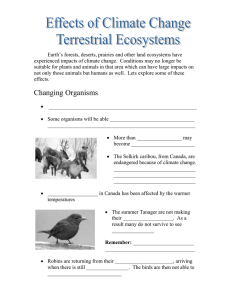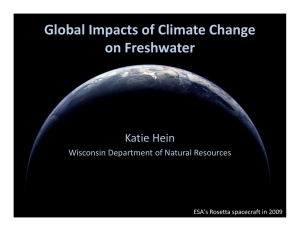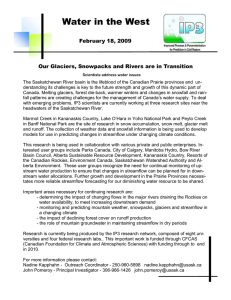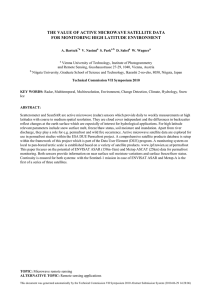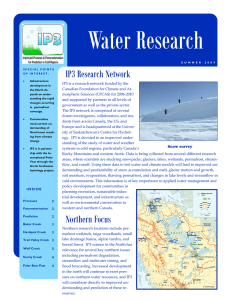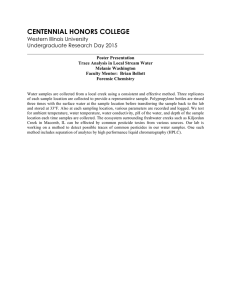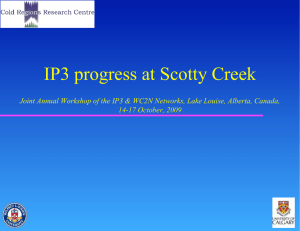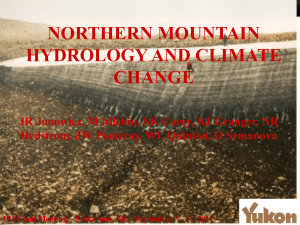Water in the North February 18, 2009
advertisement
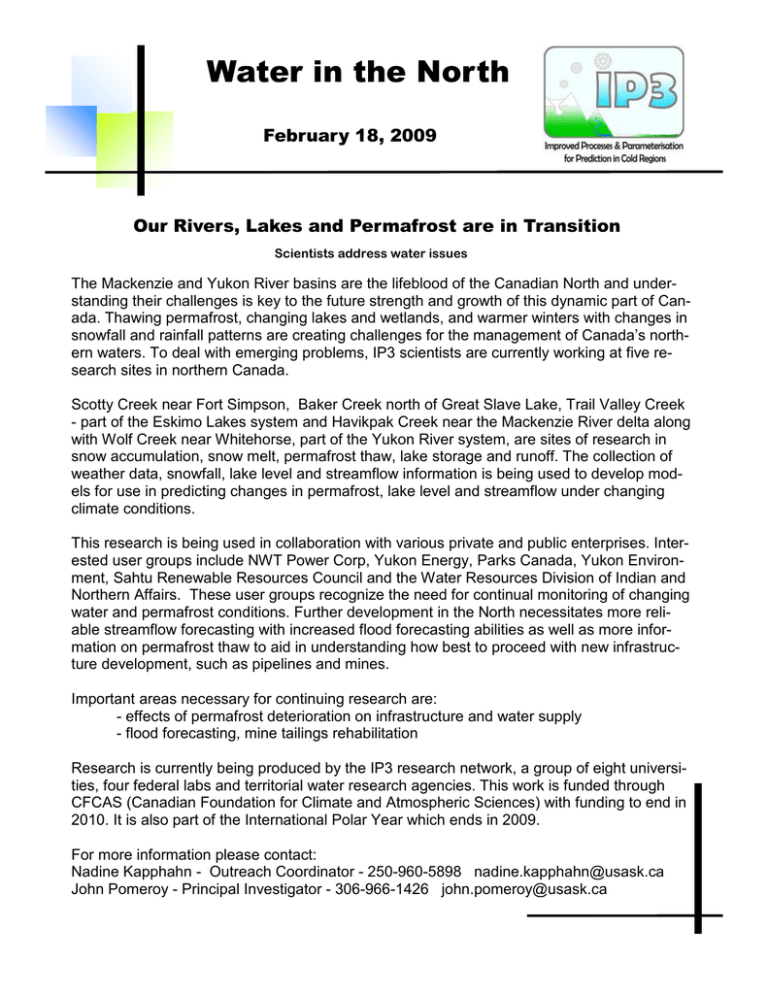
Water in the North February 18, 2009 Our Rivers, Lakes and Permafrost are in Transition Scientists address water issues The Mackenzie and Yukon River basins are the lifeblood of the Canadian North and understanding their challenges is key to the future strength and growth of this dynamic part of Canada. Thawing permafrost, changing lakes and wetlands, and warmer winters with changes in snowfall and rainfall patterns are creating challenges for the management of Canada’s northern waters. To deal with emerging problems, IP3 scientists are currently working at five research sites in northern Canada. Scotty Creek near Fort Simpson, Baker Creek north of Great Slave Lake, Trail Valley Creek - part of the Eskimo Lakes system and Havikpak Creek near the Mackenzie River delta along with Wolf Creek near Whitehorse, part of the Yukon River system, are sites of research in snow accumulation, snow melt, permafrost thaw, lake storage and runoff. The collection of weather data, snowfall, lake level and streamflow information is being used to develop models for use in predicting changes in permafrost, lake level and streamflow under changing climate conditions. This research is being used in collaboration with various private and public enterprises. Interested user groups include NWT Power Corp, Yukon Energy, Parks Canada, Yukon Environment, Sahtu Renewable Resources Council and the Water Resources Division of Indian and Northern Affairs. These user groups recognize the need for continual monitoring of changing water and permafrost conditions. Further development in the North necessitates more reliable streamflow forecasting with increased flood forecasting abilities as well as more information on permafrost thaw to aid in understanding how best to proceed with new infrastructure development, such as pipelines and mines. Important areas necessary for continuing research are: - effects of permafrost deterioration on infrastructure and water supply - flood forecasting, mine tailings rehabilitation Research is currently being produced by the IP3 research network, a group of eight universities, four federal labs and territorial water research agencies. This work is funded through CFCAS (Canadian Foundation for Climate and Atmospheric Sciences) with funding to end in 2010. It is also part of the International Polar Year which ends in 2009. For more information please contact: Nadine Kapphahn - Outreach Coordinator - 250-960-5898 nadine.kapphahn@usask.ca John Pomeroy - Principal Investigator - 306-966-1426 john.pomeroy@usask.ca
